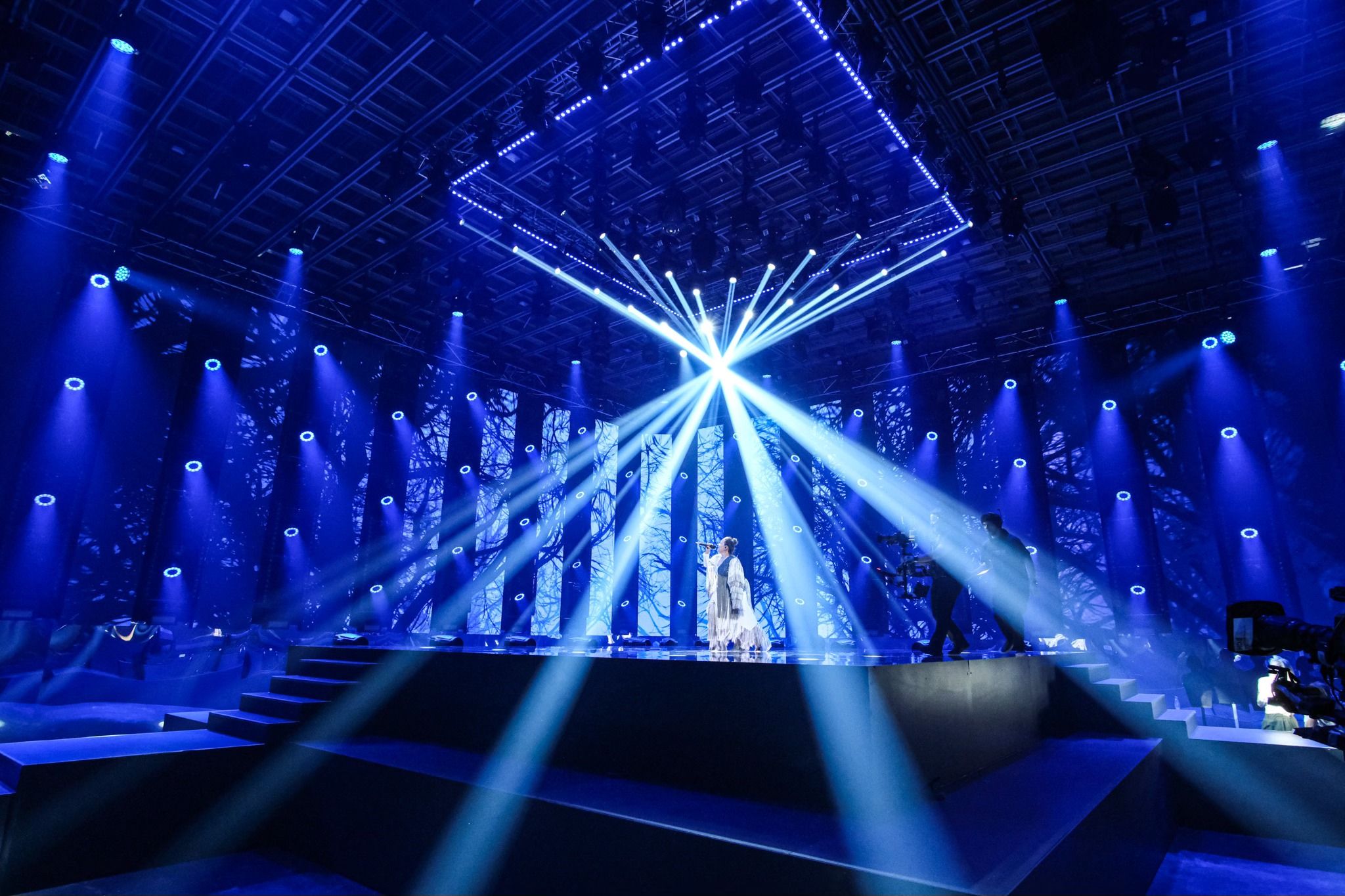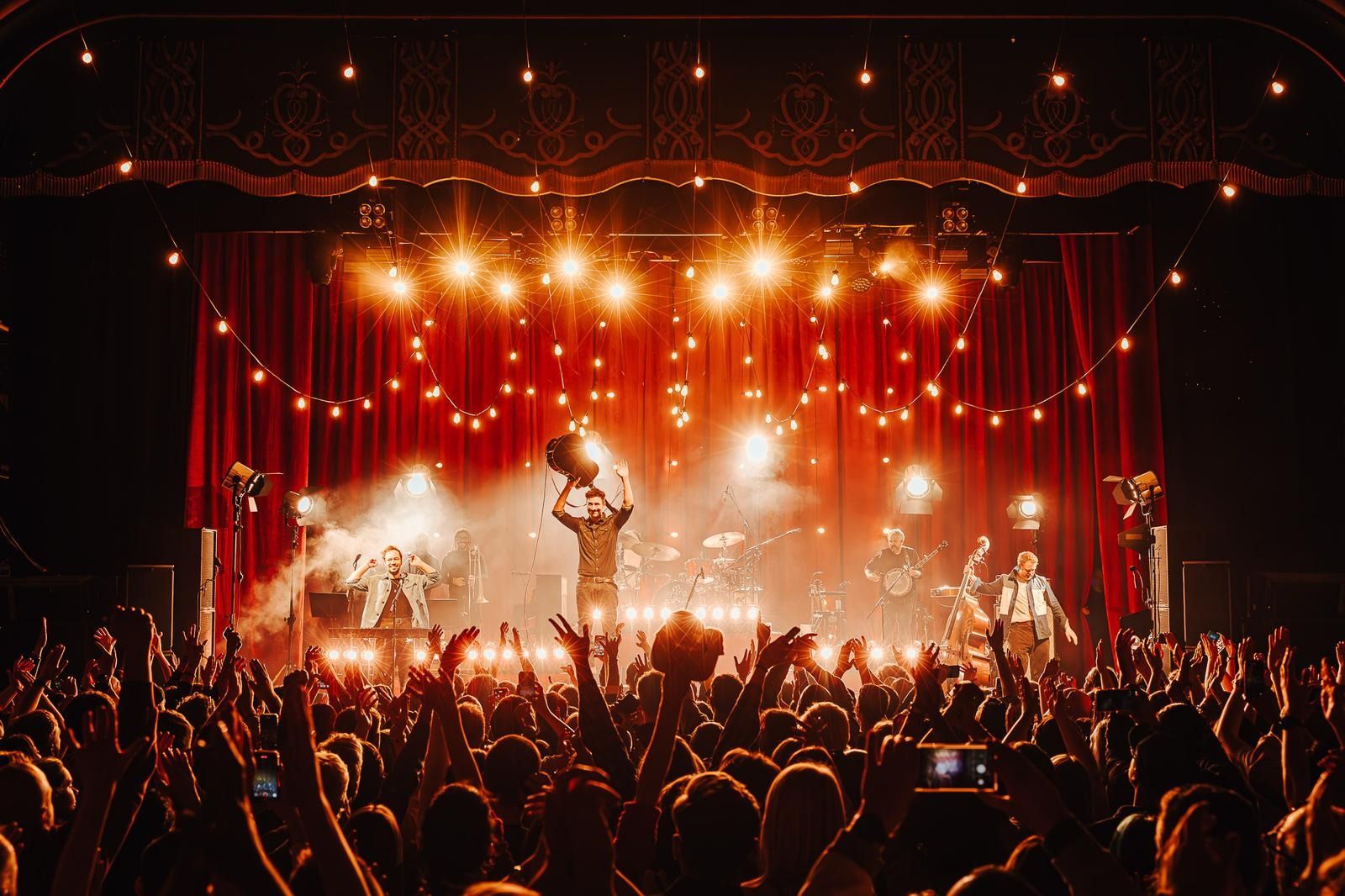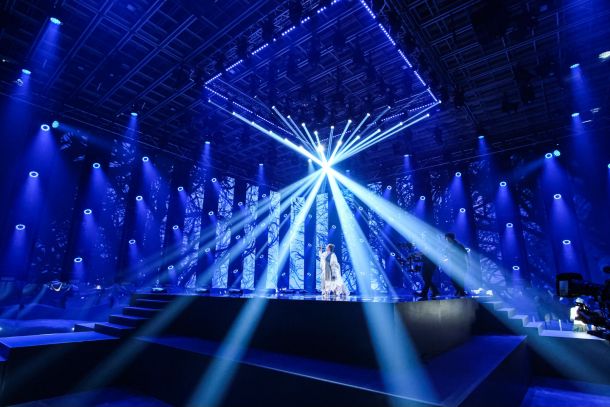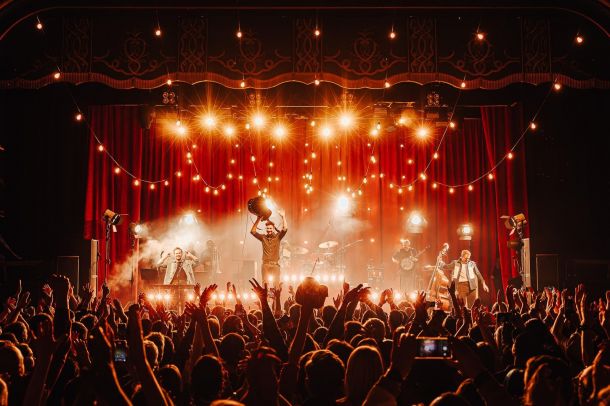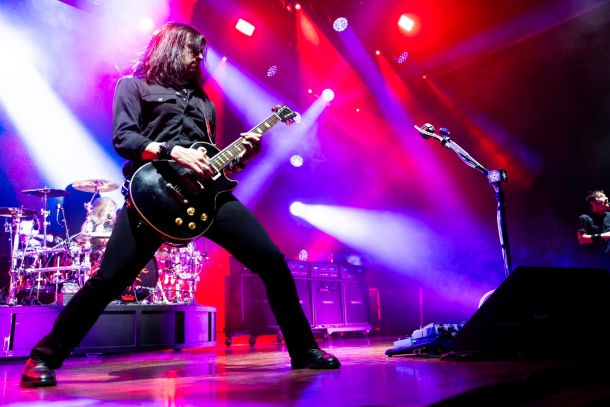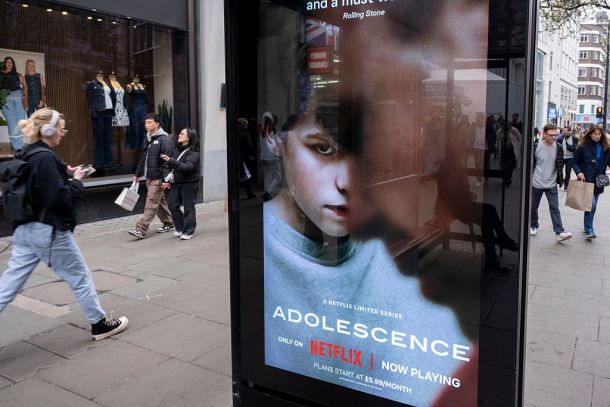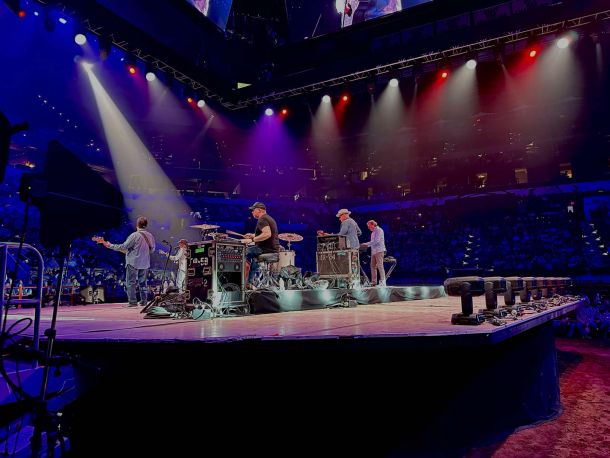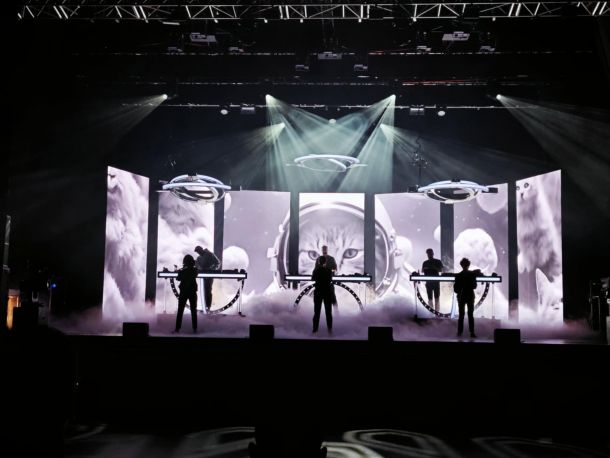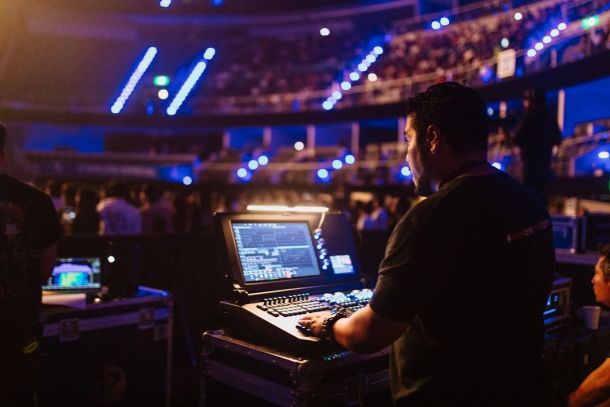Matt “Jonezy” Jones and ChamSys Give Evanoff New Look
DENVER – Popular Colorado dream rockers Evanoff have their moments of dark bass-driven jams, but for the most part their ethereal psychedelic-tinged music doesn’t travel on the same sound waves as the thumbing traps that EDM star G. Jones swims in. Still, the two share an affinity for dramatic moments in music — and lighting. This was evident when the Boulder-based trio went to a G. Jones show recently.
So impressed were the band members with the infinite pans and tilts that fed off the energy of Jones’ musical performances, that they talked to their lighting designer Matt “Jonezy” Jones about moving away from the video -heavy look of their last tour and going with a beefier moving beam design. Jones was only too happy to oblige. Drawing on his ChamSys MagicQ MQ80 with wings, he created a deep, saturated other-worldly show with EDM-style visuals that wraps the band in immersive blankets of light from 36 moving fixtures.
“It was a great new look for the band,” said Jones of the lightshow, which appeared for the first time at Evanoff’s Saturday February 23rd concert at Denver’s Bluebird Theater. “We brought in 36 movers for our floor package, all patched into the ChamSys, then out via Art-Net to my 4-port ChamSys Node.”
Jones positioned many of his movers in ways he rarely has before. “I don’t usually do this when I design rigs, but I yoked many of my movers straight out,” he said. “I am usually not a fan of this type of hang, as it can take considerably longer to get perfect angles and beams to cross just right. But in my experience, when using infinite pan/tilt, this is one of the most valuable ways to hang.”
A ChamSys user for over 10 years, Jones relied on the pan/tilt offset features of this MagicQ MQ80 to help him align his beam angles. “The offsets allow me to get fixtures lined up via my patch window quickly and easily, so all things move symmetrically when fanning,” he said. “This saved an immense amount of time when we had to deal with wonky hangs. Another thing I valued in this job were the ChamSys’ cloning and morphing. This made it easy to create consistency from our existing programming into this new rig.”
In addition to his MQ80 console, Jones used his execute wing for most of his FX, as well as strobes, gobos and prisms, and all of his “hard looks.” His extra wing was relied on for beam positions, as well as all FX speed and size masters. “I break these out per fixture type, if possible, to allow for very granular FX control,” explained Jones. “Alec ‘Red’ Szuch, who worked with me on this project, did a remarkable job in this and every area of the show. I can’t say enough good things about him.”
Designing his show in Vectorworks, Jones exported it to LIGHTCONVERSE, and patched the ChamSys console and PreVis. This allowed him to see his beguiling beam patterns in a myriad of positions and from a range of perspectives.
“This design took a couple of iterations to get the angles just right for the room,” he said. “Beam positions are the single most important part of my programming, so I spent many hours pre-vising, as well as dialing in my beams onsite. With 36 beams, I designed the rig to wrap around the band, so we were really able to create some cool patterns by tossing the lights everywhere in symmetrical and asymmetrical movements, then stopping them at various points, all while keeping front light to an absolute minimum.”
Jones accented these intricate patterns further through the adroit use of colors. At times he saturated the stage with very dark, almost brooding hues, to create trance effects. Then, when the band took its music in a more upbeat direction, he used the flash buttons on his MagicQ MQ80 to crash bright whites through the colored patterns.
As it moved through patterns and colors enveloping the stage and artists in its immersive looks, Jones’ lightshow never strayed from its primary mission of supporting the music. “I am guided by a philosophy of ‘turning the music into light,’” he said. “In other words, my mission is to follow the music. Ultimately, this is what we were going for in this design.”

